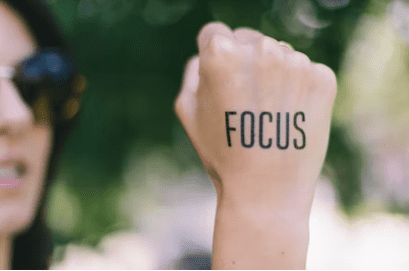Are Affirmations Copyrighted
Learn about these copyrighted people who can benefit from affirmations and potentially make them less effective.

Selfpause Affirmation App
Download the app to get 1,000’s of affirmation meditations and everything you need to write, record and listen to your own.
Affirmations are positive statements that can help to change your thinking and improve your life. For example, if you repeat the affirmation “I am healthy and happy”, you may start to believe it more and make changes in your life that lead to better health and happiness.
However, some people believe that affirmations should be copyrighted in order to prevent others from using them without permission. This could limit the number of people who can benefit from affirmations and potentially make them less effective.
As with all written content if affirmations have been created and published by an organization or individual those affirmations (or any written content) is by default copyrighted. While using affirmations or others writing for your own personal use is generally allowed reproducing and/or selling that content is not allowed and would be considered an infringement of copyright law.
Benefits of copyrighting affirmations

If affirmations are copyrighted, it would give the creator more control over how they are used. For example, they could choose to only allow people to use their affirmations if they pay for them. This could lead to more people using affirmations, as they would be more accessible.
It could also mean that only authenticated and qualified individuals could use the affirmations. This could help to ensure that the affirmations are used correctly and improve their effectiveness.
What are the drawbacks of copyrighting affirmations?

Critics of copyrighting affirmations argue that it would limit their power and reach. If only a small number of people had access to them, they would be less effective. It is also arguable that copyrighting affirmations could make them more expensive, which would limit their access even further.
To Determine the pros and cons of copyrighting your own affirmations:
The first step is to consider the objectives of copyrighting affirmations. Are you looking to create more control over how they are used? Are you hoping to increase accessibility or make sure they are used correctly?
Once you have clarified your objectives, you can start to look at the pros and cons of copyrighting affirmations. Consider the potential benefits and drawbacks of doing so, and weigh up which side you think is more important.
You may also want to think about the ethical implications of copyrighting affirmations. Is it something that you are comfortable with? Would it go against the values that affirmations represent?
Remember, there is no right or wrong answer when it comes to this issue. It is a personal decision that you will need to make based on your own values and beliefs.
Copyrighting affirmations could have both positive and negative implications. It is important to consider all of the potential consequences before making a decision. Ultimately, it is up to you to decide whether or not you think affirmations should be copyrighted.
Here is a list of the main pros and cons of copyrighting affirmations:

Pros:
• Could lead to more people using affirmations
• May ensure that affirmations are used correctly
Cons:
• Could limit the power and reach of affirmations
• May make them more expensive and less accessible
Some people also believe that there are ethical implications to copyrighting affirmations. They argue that it is not right to profit from something that is supposed to be positive and helpful. This is something that each individual would need to weigh up for themselves.
At the end of the day, whether or not you think affirmations should be copyrighted is a personal decision. There are pros and cons to both sides of the argument. Ultimately, it is up to you to decide what you think is best.
15 tips to help you write effective affirmations:

1. Keep them realistic – Affirmations should be believable and something that you can realistically achieve. Don’t set yourself up for disappointment by making statements that are impossible to achieve.
2. Make them specific – Vague affirmations are less likely to be effective. Be as specific as possible when creating your affirmations.
3. Write them down – Writing down your affirmations can help to make them more concrete and real. You can also keep a list of them handy to refer to when you need a reminder.
4. Repeat them often – The more you repeat your affirmations, the more likely you are to believe them. Try saying them out loud several times a day, or whenever you need a boost.
5. Say them with conviction – When repeating your affirmations, it is important to say them with confidence and conviction. Believe in what you are saying and let the words sink in.
6. Create a vision board – A vision board is a collection of images and words that represent your goals and aspirations. Creating one can be a great way toVisualize your affirmations and keep them top of mind.
7. Use affirmative language – Make sure that the language you use in your affirmations is positive and optimistic. Phrases such as “I can” and “I will” are much more powerful than using negative words like “don’t” or “can’t.”
8. Be patient – It takes time for affirmations to take effect, so don’t get discouraged if you don’t see results immediately. Keep at it and eventually you will start to see and believe the positive changes in your life.
9. Be persistent – If you start to doubt your affirmations, don’t give up. Persist in repeating them and eventually, they will become part of your belief system.
10. Try different types of affirmations – There are many different types of affirmations that you can use. Experiment with different ones to find what works best for you.
11. Visualize yourself achieving your goals – When you repeat your affirmations, try to visualize yourself achieving the things you want most. See yourself succeeding and feel the emotions that come with it.
12. Use affirmative statements about others – As well as using affirmations about yourself, try making some about other people in your life. Positive statements about others can help to improve your relationships and make you feel good.
13. Be specific about what you want – The more specific you are about what you want, the easier it will be to achieve. Make sure your affirmations are clear and concise so that you can focus on them easily.
14. Believe in yourself – One of the most important things to remember when using affirmations is that you need to believe in yourself. If you don’t believe that you can achieve something, then it will be much harder to do so.
15. Set realistic goals – As well as being realistic, your goals should also be achievable. Don’t set yourself up for disappointment by making affirmations that are impossible to achieve.
Our Top FAQ's
Can affirmations be copyrighted? Yes, affirmations can be copyrighted. Copyright law protects original works of authorship, including literary works such as affirmations.
What is the copyright status of affirmations? The copyright status of affirmations depends on whether they are original works of authorship. If an affirmation is an original work, it would be protected by copyright law.
Can I use affirmations in my own work without infringing on someone else’s copyright? It depends on whether the affirmations you want to use are protected by copyright and whether you have permission from the copyright holder to use them. If you want to use someone else’s affirmations in your own work, you should either obtain permission from the copyright holder or ensure that your use falls within one of the exceptions to copyright law, such as fair use.
Do I need permission from the creator of an affirmation to use it in my own work? In general, yes, you would need permission from the creator of an affirmation to use it in your own work. However, there may be certain circumstances in which you could use the affirmation without permission, such as if your use falls within one of the exceptions to copyright law.
How can I protect my own affirmations from being used without my permission? To protect your own affirmations from being used without your permission, you should consider registering your affirmations with the U.S. Copyright Office. This will give you the ability to enforce your copyright in court if someone uses your affirmations without your permission. You can also include a copyright notice on your affirmations to let others know that they are protected by copyright.
